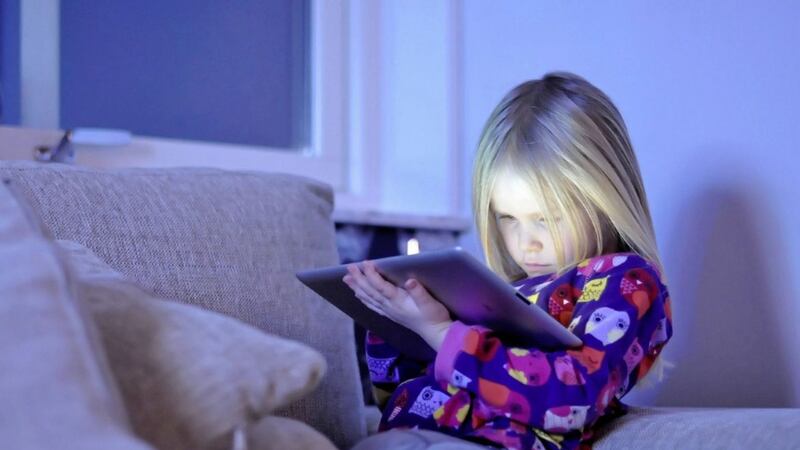SINCE time immemorial it has invariably been the habit of the older generation to lament and condemn the excesses of the young.
Currently, serious concern is being voiced by government, educators, medical and mental health professionals - and not enough parents - about our children's addiction to smartphones, their too-easy-access to unregulated online social media and obsession with addictive and often violent electronic games.
Today, the means of ensnaring the unwary young have become ever more sophisticated and attractive.
I'm old enough to remember when television had only two channels and a frequently-used 'off' button and being banished from the living room at the nine o'clock watershed when 'Play for Today' came on - preceded by a cultured voice announcing "inappropriate content for minors".
I remember, too, the parental banning of Radio Luxembourg as an accompaniment to studying for O- and A-Levels: "Nobody can concentrate with that racket going on."
At teacher training college, I recall the resident students' battle with authority for permission to watch Top of the Pops in the common room.
We were 18-year-old grown women, but the pelvic gyrations of popstars and the scantily-clad Pan's People would indubitably lead us to perdition.
Our strongest influences then were home, school, church and community.
Most importantly, the cult of 'self' had not yet been invented.
It was an era when having big notions, bragging, or putting oneself forward were positively discouraged.
Had you a talent, modesty forbade trumpeting it, otherwise you would be thought a 'bold article'.
Meeting expectations was more important than the praise and the less you knew about the unpleasantnesses of the world, the better.
What we actually were was naively innocent and dangerously ignorant in a rapidly changing moral climate.
One-and-a-half generations of children have been reared since, and the psychological landscape has changed radically - not for the better.
Yes, we agonised over being plump, plain, acned, awkward, envious, inadequate and misunderstood, yet managed to emerge unaided, as reasonably well-adjusted adults despite these flaws.
But we were not perpetually looking into the skewed mirror of perfection that social media projects and reflecting on our own deficiencies, as today's youngsters do.
Rapid technological advance gifted us a treasure trove of learning support, speedy information-gathering, mind-broadening research and the development of skills.
We greeted it with unjudgmental glee, until we belatedly discovered its darker side - swiftly subverted by the unscrupulous, who have managed to turn gold into time-wasting dross and dangerously persuasive sources of self-harm.
Childhood and its charming innocence gets shorter with each generation.
There are enough statistics available to prove that undue use of social media is sufficiently damaging to trigger government warnings.
An English tabloid monitored iPad use by three five-year-olds and discovered they were spending 2 hours 55 minutes a day online during the week and up to five hours a day at weekends.
That's an unhealthy total of nearly 25 hours of passive activity - and this sanctioned by their parents.
Apparently, the most popular viewing among this age group is of a child opening box after box of new toys.
Nothing like fostering the 'acquisitive gene' early.
Of course, if mum and dad are sitting silently side by side on the sofa, equally engrossed in their iPhones, what can one expect? Children see, children do.
The journey from interest to absorption to all-consuming addiction is a short one.
Occupying many more column inches is the debate about student use of mobile phones in school.
Speaking as an ex-teacher, I wouldn't let them over the door.
Every school has an office and a secretary to deal with necessary or emergency calls.
Among adolescents, mobile phones have spawned a subversive counter-culture that is unsavoury, intimidatory and exploitative.
The mistake was to let them in in the first place. Things have come to a pretty pass when schools have to call in mental health consultants to deal with the consequences.
In a recent television feature on teenage mental health, I was struck by a remark uttered by an eloquent 15-year-old pupil: "I find it hard to be happy..."
Enough said.








